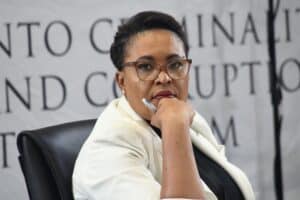Should the South African Rugby Players Association succeed with their legal case, local rugby will have its third liquidation in less than two years.

The bleak state of South African rugby’s finances is once again in the spotlight after the South African Rugby Players Association (Sarpa) announced that it had applied for a liquidation order against the Border Rugby Union (BRU).
In a statement, the representative body noted that the BRU has “failed intermittently” since December to pay salaries in full.
One of the key issues is the fact that the BRU is currently unable to fund the players’ pension and medical aid contributions.
As a result, the players wouldn’t be insured against serious injury whilst playing, prompting Sarpa to inform the union that “the players will be obliged to withhold their rugby-playing services until the medical premiums have been paid in full”.
With the SuperSport Rugby Challenge commencing in less than a month – Border is one of the participants – no player is “currently not allowed to train for or participate in a rugby match for Border Rugby Union”.
The BRU have stated they can’t make salary payments in full due to “cash flow challenges”.
“Although bringing the liquidation application is a no-win situation for everyone, it remains the only logical action for the players to take especially taking into account the intolerable levels of uncertainty and hardship they have had to and are still enduring,” said Eugene Henning, MD of Sarpa and MyPlayers.
Disconcertingly, the BRU will be the third local rugby union to be liquidated in less than two years, following the bankruptcy proceedings of the Eastern Province Rugby Union as well as Western Province’s professional arm.
Henning said that “another major union indicated this week to us that it might not be able to meet its financial obligations towards the players in 2018”, leading to speculation that the embattled Bulls could be next on the list.
The Blue Bulls Company (BBC) instigated a turnaround strategy in mid-2017 in response to increasing financial pressures and insist they’re keeping afloat despite “challenges”.
This aren’t going too swimmingly at the South African Rugby Union (Saru) either.
The national federation made a pre-tax loss of R33.3 million for the 2017 financial year.
CEO Jurie Roux said there would’ve been a small profit had it not been for “strategic investments” such as the 2023 World Cup hosting bid and the Cheetahs and Kings’ inclusion in the Pro14 competition.
For more sport your way, follow The Citizen on Facebook and Twitter.
Support Local Journalism
Add The Citizen as a Preferred Source on Google and follow us on Google News to see more of our trusted reporting in Google News and Top Stories.








